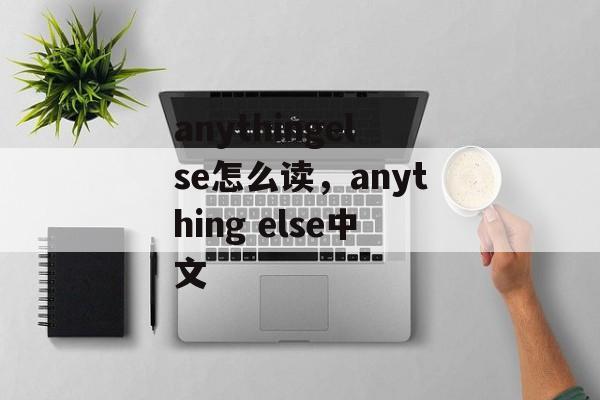大家好,今天小编来为大家解 *** ythingelse怎么读这个问题,anything else中文很多人还不知道,现在让我们一起来看看吧!
本文目录
一、else怎么读
作副词的意思是:其他的;别的;另外的;不同的
2、nothing else没有别的东西;没有别的事情
5、somewhere else别的地方;某个时空
else, or else这两个词(组)都表示“否则”。其区别是:else是个副词,所以与前一句用分号分开; or else是个连词,所以与前一句用逗号分开。例如:
他的眼睛也许是瞎了,否则他为什么不会念这个名字呢?
1、His eyes perhaps were blind; else why could he not read the name?
2、His eyes perhaps were blind, or else why could he not read the name?
1、else的基本意思是“另外的”“别的”“除去”“其他”。有时也可表示“否则”“要不然”,它是orelse省略or的用法。在日常口语中,else有时用在句中仅起强调作用,而实际上它并没有增添什么新意思。
2、当all, a good〔great〕 deal, a lot, a little, much等与else连用作主语时,谓语动词须用单数形式。当else后面跟着but, except或besides和一个宾语时,else是多余的,应删去。
3、在比较句中,如果比较的主体和比较的对象属同一类,而比较的对象又是all, *** ryone, anybody等词时,必须加else以排除比较的主体。
4、else的所有格形式是else's,但与someone或anyone连用时,应说someoneelse's,不能说someone'selse。else无比较级和更高级形式。
二、busy用英文怎么读
busy的读音:[ˈbɪzi]。
英 [ˈbɪzi]美 [ˈbɪzi]
adj.忙的;繁忙的;热闹的;( *** )占线的。
第三人称单数: busies、现在分词: busying、过去式: busied、过去分词: busied。
1、Shebusiedherselfgettingtowelsready
2、ForawhileKathrynbusiedherselfinthekitchen.
busy在句中可用作定语或表语。用作表语时,其后常可接介词about, at, in, over, with引起的短语,这些介词有时可省略,特别是当其宾语为动名词时。
busy用于too...to结构时可接动词不定式。
1、busy railway line繁忙的铁路线。
三、else怎么读.
1、在英语中,"else"这个词的读音为英式发音[els]或美式发音[ɛls],它是一个具有多重含义的词。作为副词,"else"意指“其他”或“否则”,用来表达在列举或选择后还有其他选项。例如,句子"There's nowhere else to go"(没有其他地方可去)就体现了这种用法,它强调在列举完所有可能的地方后,只剩下一个无处可去的选择。
2、作为形容词,"else"则表示“别的”或“其他的”,通常用来修饰名词,以指代除之前提到的之外的其他事物。例如,如果你说"I need a book, anything else?"(我需要一本书,还有其他东西吗?),这里的"else"就指的是除了你已经提到的书以外的其他物品。
3、总之,"else"是一个灵活且实用的词汇,无论是在句子中作为副词还是形容词,都能帮助我们清晰地表达出“除了...之外”的意思。理解和掌握它的发音和用法,对于英语学习者来说非常重要。
四、anything怎么读
读音:英 [ˈeniθɪŋ],美 [ˈeniθɪŋ]。
意思是:任何东西,任何事物;随便哪个东西;随便什么事物;重要东西;重要事物。
用法:用于否定句、疑问句也用于if或whether之后,或紧接pr *** nt、ban、 *** oid等动词,代替something。
用法例句:Would you like anything else?
1、anything left,任何剩下的东西。
2、anything more,任何更多的东西。
3、ready for anything,准备好做任何事。
6、anything like *** /sth,用于疑问句和否定陈述)和…相像;与…相似。
7、like anything,非常;像什么似的。
五、afternoon怎么读
afternoon的读音是:英[_ɑ_ft_'nu_n]。
afternoon的读音是:英[_ɑ_ft_'nu_n]。afternoon的例句是用作名词(n.)Goodafternoon!下午好。afternoon的意思是n.下午。
一、详尽释义点此查看afternoon的详细内容
n.(名词)下午(中午12点至6点左右)午后后期过晌儿adj.(形容词)(在)下午的(适于)午后的int.(感叹词)下午好二、英英释义
Noun:thepartofthedaybetweennoonand *** ning;"hespentaquietafternooninthepark"
aconventionalexpressionofgreetingorfarewell
Theafternoonisthepartofeachdaywhichbeginsatlunchtimeandendsataboutsixo'clock.
e.g.He'sarrivingintheafternoon...
e.g.Hehadstayedinhisroo *** llafternoon.
Shecouldknitupababy'scoateeinanafternoon.
她一个下午就能编结好一件婴孩的紧身短上衣。
Imethiminahotandbreathlessafternoon.
我是在一个又闷又热的下午遇到他的。
用作名词(n.)形容词+~alltheafternoon整天下午 *** ryafternoon每天下午thatafternoon那天下午thisafternoon今天下午oneafternoonlastweek上周的一个下午acoldafternoon一个寒冷的下午abusyafternoon一个忙碌的下午ahotafternoon一个炎热的下午名词+~tomorrowafternoon明天下午yesterdayafternoon昨天下午~+名词anafternoonfarmer懒人afternoonconcert午间音乐会afternoontea下午茶afternoonwatch中午至下午4点的守望agoodafternoon'swork整整一下午的工作介词+~intheafternoon在下午ontheafternoonof...在?的下午六、情景对话
A:Whatdoyoudoinyo *** sparetime?
B:Iliketoplaygolfandbadminton.
A:Whatdoyouusuallydo *** ry *** ning?
B:Ijustliketosleeplikealazycat.
B:IenjoyreadingsomuchthatIalwaysreadinaquietafternoonwithacupofgoodcoffee.
我非常喜欢读书,常在安静的下午一边喝一杯香浓的咖啡一边读书。
A:Bytheway,wouldyouliketoseemovies.
B:I'mTom,Zhang.We *** deareservationforteathisafternoon.
我是汤姆。张,我们已预定好今天下午用茶点。
A:Yes,sir.Thisway,please.Here'syo *** table.Isthisallright?
是的先生。请这儿走。这就是你们的桌子,您感觉还可以吗?
B:Yes,it'snice,indeed.Thankyou.
A:I'msogladyoulikeit.Whatwouldyoulike?Weservecoffeeandtea,sandwiches,cakesandcolddrinks.Pleaselookundertheplate-glassatthemenuforafternoontea.
您满意我很高兴。您想要点什么?我们供应咖啡、茶、三明治、蛋糕和冷饮。请看玻璃下面的茶点单。
C:I'lltryachickensaladsandwichandh *** eacupofcoffeewithcream.
我想尝尝鸡肉色拉三明治,并要一杯奶咖啡。

B:Iwillh *** eblackteawithlemonandsugarandapieceofSwissroll.
我要柠檬红茶加糖和一个面包卷。
A:Weh *** estrawberrieswithcreamtoday.Isuggestyoutrythem.
我们今天供应鲜奶油草莓,我建议你们可以试一试。
A:Thisapartmenthasthreeroomsandabath.Here'sthekitchen.
这套公寓有三个房间和一个卫生间。这儿是厨房。
A:Notreally,foroneperson,andithasanicegasrangeandagoodrefrigerator.Therearelotsofshelvesandcupboards,too.
实际上不小吧,你只一个人。而且这儿有一只漂亮的煤气灶和很好的冰箱。还有很多大橱和装饰橱。
A:You'llh *** etwolargeonesinthebadroom.Onehasshelvesandabuilt-inshoerack.Thenthere'sastorageclosetinthelivingroo *** ndalinenclosetinthebathroom.
在卧室内有两个大壁橱。其中一个有搁板和鞋架。在起居室有一个放在床上用品及毛巾的壁橱。
B:Thelivingroomlookssortofdark.
A:We'repaintingitalightercolor,anditgetstheafternoonsun.
我们正在把它漆成明亮的颜色。下午房间内可以照到太阳。
B:Well,thankyouforshowingmearound.I'llletyouk *** nightifIdecidetotakeit.IwanttolookaroundbeforeI *** keupmymind.
谢谢你给我们看了房间。如果我决定要,今天晚上我会告诉你。我想作出决定前再慎重考虑一下。
n.(名词)afternoon指正午以后至日落之前这段时间,译为“下午”,复数形式afternoons指不断重复的下午,起强调作用。书面语中可引申表示“后半期,后半”。一般说“在下午”用介词in,但当afternoon前有修饰成分如“某日的下午”或“星期×的下午”时用on,但当其前又有时间状语时,on也可换为in。afternoon与this,that,yesterday,tomorrow, *** ry,all等限定词连用时相当于副词短语,其前不使用介词。afternoon用作状语时,其前也不使用介词。afternoon也可置于另一名词之前作定语。afternoon由after和noon两个词组成,常以intheafternoon形式出现,指“在下午”,也可说d *** ingtheafternoon;有时,afternoon前不可加in或on,如thisafternoon(今天下午),yesterdayafternoon(昨天下午)等表达方式;afternoon较少用做状语短语,但shortlyafternoon(午后不久),immediatelyafternoon(午后立即)是用比较广泛。Weleftafternoontoday.
复数形式afternoons可用作副词,指“在每天下午”。She *** *** ewithEnglishgram *** rafternoons.
每天下午,她都帮我学习英语语法。
从时间意义上来说,人们通常把午饭后到下班前这段时间作为“afternoon”,而正常时间下班后开始作为“ *** ning”,而“ *** ning”和“night”之间的转换往往取决于人们 *** 睡觉的时间。afternoon的相关临近词
afterward、after *** th、afternoons、afternooner、Afternoon.、afternoonhat、afternoonoff、afternoontea、afternoonshow、afternooncoat、afternoonsuit、afternoon ***
点此查看更多关于afternoon的详细信息
OK,关于anythingelse怎么读和anything else中文的内容到此结束了,希望对大家有所帮助。
标签: 中文 anythingelse anything 怎么 else







